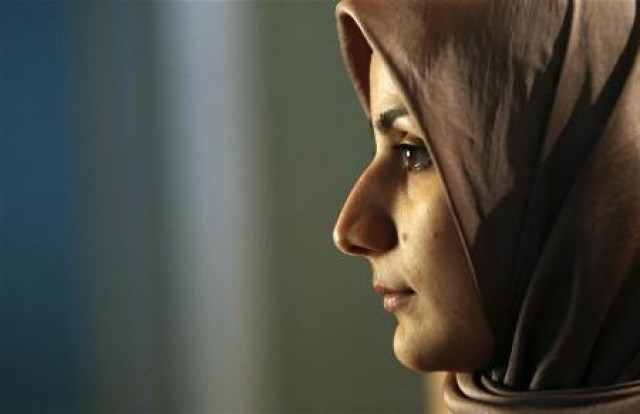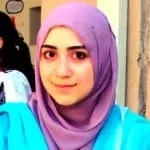Yes, I was raised in a family that was in tune with its religious identity, and my mother covered her hair. No, I was not forced/blackmailed into wearing a scarf. My father didn't do anything either, for those who are thinking he probably pressurised my mom behind the scenes, since the stereotype says all Muslim men oppress their women.
I was raised in the US. Until grade three, I went to a public school, where an overwhelming majority of the students were non-Muslim.
Now when I was six, I wasn't very aware of the whole 'Muslimphobia' that has come to infect the world today. I knew I might look funny, and kids might tease me just like they taunted the short, Sikh boy in my class. He wore a turban, which was usually bright blue, and he was the butt of many jokes. I also knew that I loved God, my God, my Allah, and with a sense of confidence that every child is blessed with, I pulled on that scarf and I haven't looked back ever since.
Let's make one thing clear: I am not the best of Muslims. It would be a long stretch to even call me a very good Muslim, however you choose to quantify that particular goodness.
I struggle with understanding and interpreting my faith, and I struggle with the world around me, as many men and women around the world do, regardless of whether they are Bahai, Christian, Zoroastrian, Hindu or Jewish. I do, however, have a very strong underlying faith in Islam, and in God. I remember, as I walked into Mrs Mattson's second grade homeroom, I thought to myself,
They must be looking at me because my hijab is so cool!
Believe it or not, it was easier for me to wear a scarf in America than it was for me to wear it in Pakistan; yes, the Islamic Republic of Pakistan.
Even post-9/11, when I walked into a Walmart with my mom, the American at the door said "Salam alaikum". He had a big smile on his face, and though you may say he was just doing his job, I don't believe it.
When 9/11 happened, I was in Pakistan, and our flight home was delayed several weeks due to the attacks. When I finally came back, I remember that even though I didn’t understand what exactly had happened, and why it had happened, I remember that my cousins in Pakistan had said to me that my friends wouldn’t treat me the same any more. But when I got back, I was still me, and they were still my friends.
Now I can’t speak for all the American population, but I’d just like to say that I did not, in those few years directly after 9/11 face any serious backlash on a personal level. This could be because I lived a very sheltered life, and I’m thankful I never experienced any severe negativity.
It was when I started my O' level (8th grade), that I faced social backlash. I had just moved to Pakistan, and was having trouble adjusting to my new school, my long lost relatives, and the motherland. Friends and extended family were very open with their opinions about my scarf. They found it unnecessary, restricting and useless. I was pressurised to stop covering my head. My grandmother even went as far as to insist that I stop being childish and ridiculous, when I planned to wear a scarf to my cousins engagement.
Classmates whispered that I was probably crazy, backward, or just bald. I was nicknamed 'Taliban'. The criticism was difficult to bear, and harder to understand. Why was there so much hate directed at me because of a piece of cloth?
Islam transcends national boundaries and culturally-based definitions. In Pakistan, Islam has often been held hostage by the prevailing idea of nationalism, and the human aspect has been ignored. Instead of the principles of equality, honesty, peace, and forgiveness, Islam is seen as a destructive force. Just by wearing a scarf, I was the enemy.
The experience taught me that I needed to believe in myself. It made me stronger. I can achieve my goals without giving up who I am, who I want to be. Furthermore, if I am confident in my identity, others will be as well.
I hope all hijabis find confidence, and I hope the world sees us as more than the stereotype. Most of us are not oppressed. Many of us love our scarf. I certainly do.
If we're all talking about freedom, then why don't we understand that there is freedom of choice? This is my choice; I choose to wear a scarf.
[poll id="209"]
Follow Zainab on Twitter @zainabkhawaja92
Join us on Facebook for blog updates and more!



COMMENTS
Comments are moderated and generally will be posted if they are on-topic and not abusive.
For more information, please see our Comments FAQ